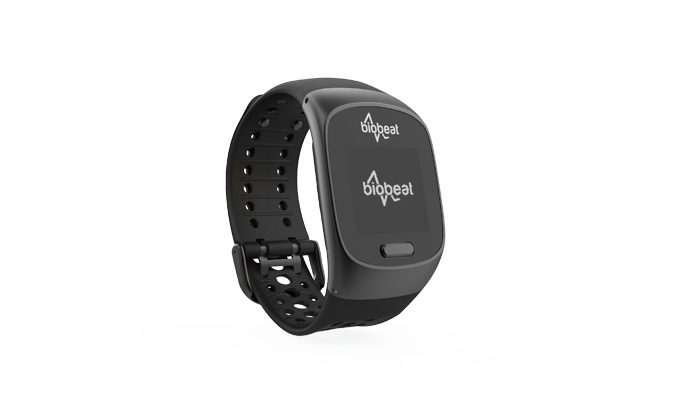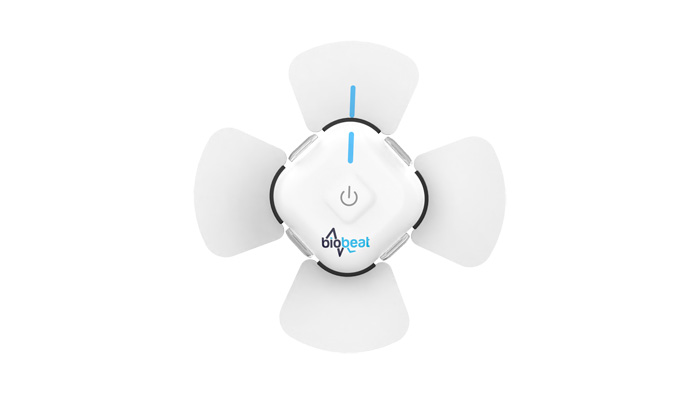Klinische Publikationen

Performance of a cuffless photoplethysmography-based device for continuous monitoring of blood pressure after cardiac surgery: a preliminary validation study
Accurate and convenient monitoring of blood pressure (BP) is challenging and relies on cuff-based devices or in the postoperative/intensive care settings, on invasive measurements. The aim of this study was to prospectively evaluate the accuracy of BP measurements obtained from a novel, commercially available cuffless, non-invasive photoplethysmography (PPG)-based chest patch monitor in patients after cardiac surgery...

Assessing Cardiac Flow Measurements Using a Noninvasive Photoplethysmography-Based Device Compared to Invasive Pulmonary Artery Catheter
The aim of the study was to compare invasive hemodynamic measurements using a noninvasive wearable photoplethysmography-based (PPG) monitor and an invasive pulmonary artery catheter...

Continuous Monitoring of Advanced Hemodynamic Parameters during Hemodialysis Demonstrated Early Variations in Patients Experiencing Intradialytic Hypotension
Intradialytic hypotension (IDH) is a severe complication of hemodialysis (HD) with a significant impact on morbidity and mortality. In this study, we used a wearable device for the continuous monitoring of hemodynamic vitals to detect hemodynamic changes during HD and attempted to identify IDH ...
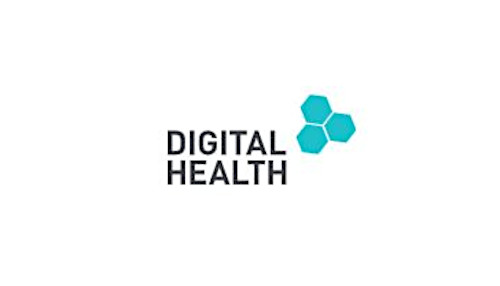
Diurnal cardio-respiratory changes in ambulatory individuals deciphered using a multi-parameter wearable device
Recent technological developments enable big data-driven insights on diurnal changes. This study aimed to describe the trajectory of multiple and advanced parameters using a medical-grade wearable remote patient monitor...

Assessing Workflow, Satisfaction, and Potential Cost Reduction when Using a Cuffless Ambulatory Blood Pressure Monitor
Hypertension is a major risk factor for cardiovascular diseases. Ambulatory blood pressure monitoring (ABPM) is used for the diagnosis of hypertension; however, currently used devices have several drawbacks complicating their use and accuracy...

Developing a real-time detection tool and an early warning score using a continuous wearable multi-parameter monitor
Currently-used tools for early recognition of clinical deterioration have high sensitivity, but with low specificity and are based on infrequent measurements. We aimed to develop a pre-symptomatic and real-time detection and warning tool for potential patients’ deterioration based on multi-parameter real-time warning score (MPRT-WS).

Assessing the use of a noninvasive monitoring system providing multiple cardio-pulmonary parameters following revascularization in STEMI patients
Continuous monitoring of ECG, respiratory rate, systolic and diastolic blood pressure, pulse rate, cardiac output, and cardiac index is important in patients with ST-elevation myocardial infarction (STEMI) admitted to the intensive cardiac care unit (ICCU)..

Comparing body temperature measurements using the double sensor method within a wearable device with oral and core body temperature measurements using medical grade thermometers - a short report
Body temperature is essential for diagnosing, managing, and following multiple medical conditions. There are several methods and devices to measure body temperature, but most do not allow continuous and prolonged measurement of body temperature. Noninvasive skin temperature sensor ...
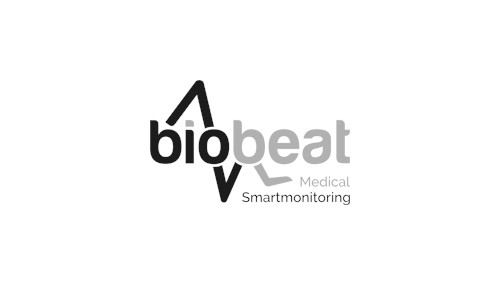
Clinical validation of a wearable respiratory rate device: A brief report
Respiratory rate (RR) is regarded as one of the basic measurements to assess a person’s physiological status. Within the clinical routine, trained medical staff are required to measure and record the patient’s RR as it is one of the major components...

Relationship between clinic and ambulatory blood pressure and mortality: an observational cohort study in 59 124 patients
Ambulatory blood pressure provides a more comprehensive assessment than clinic blood pressure, and has been reported to better predict health outcomes than clinic or home pressure. We aimed to examine associations of clinic and 24-h ambulatory blood pressure with all-cause and cardiovascular mortality in a large cohort of primary care patients referred for assessment of hypertension...

Advanced Hemodynamic Monitoring Recognition of Early Response Patterns to Diuresis in CHF Patients
There are no clear guidelines for diuretic administration in heart failure (HF), and reliable markers are needed to tailor treatment. Continuous monitoring of multiple advanced physiological parameters during diuresis may allow better differentiation of patients into subgroups according to their responses...

Influence of Sex, BMI, and Skin Color on the Accuracy of Non-Invasive Cuffless Photoplethysmography
Vital signs obtained by photoplethysmography-based devices might be influenced by subcutaneous fat and skin color. This observational comparison study aimed to test the accuracy of blood pressure (BP) measurements between a photoplethysmography-based device and cuff-based BP device in ambulatory individuals...
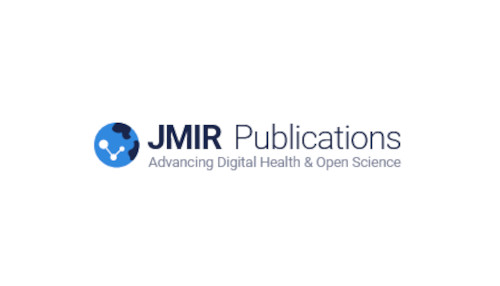
Usability of a Wearable RPM Device for the Early Detection of In-Hospital Patient Deterioration
Patients admitted to general wards are inherently at risk of deterioration. Thus, tools that can provide early detection of deterioration may be lifesaving. Frequent remote patient monitoring (RPM) has the potential to allow such early detection, leading to a timely intervention by health care providers. In this study, we show the ability to formulate scores for early warning by using RPM.

Utilizing wearable sensors for continuous monitoring of reactions COVID-19 vaccine
Clinical trial guidelines for assessing the safety of vaccines are primarily based on self-reported questionnaires. Despite the tremendous technological advances in recent years, objective, continuous assessment of physiological measures post-vaccination is rarely performed. We identify continuous and significant changes following vaccine administration in nearly all vitals. The considerably higher sensitivity of wearable sensors can revolutionize clinical trials by enabling earlier identification of abnormal reactions with fewer subjects.
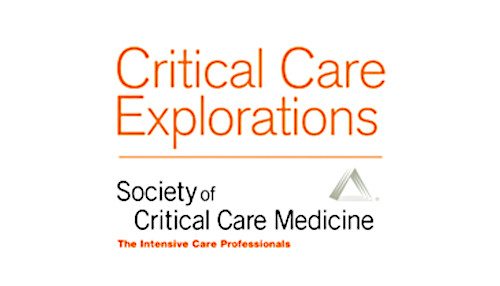
Cardiac Output Measurements Using PPG-Based Device to Pulse Contour Cardiac Output in General ICU
Cardiac output (CO) measurements in the ICU are usually based on invasive techniques, which are technically complex and associated with clinical complications. The tested chest patch device offers high accuracy for CO compared to data obtained by the pulse contour cardiac output and the thermodilution method in ICU patients.

Early Pre-Symptomatic Detection of Influenza Using Continuous Monitoring
Continuously monitoring advanced hemodynamic parameters could help in defining early pre-symptomatic changes during the early stages of influenza. This has the potential to improve future bio-surveillance efforts by providing early detection of outbreaks, improving situational awareness, and enabling better use of isolation measures and medical treatments.

Continuous Remote Patient Monitoring Shows Early Cardiovascular Changes in COVID-19 Patients
COVID-19 exerts deleterious cardiopulmonary effects, leading to a worse prognosis in the most affected. This retrospective multi-center observational cohort study aimed to analyze the trajectories of key vitals amongst hospitalized COVID-19 patients using a chest-patch wearable providing continuous remote patient monitoring of numerous vital signs. The study was conducted in five COVID-19 isolation units with a total of 492 COVID-19 patients were included in the final analysis.

Study of 24h ambulatory blood pressure measurement using a novel noninvasive, cuffless, wireless device
Ambulatory blood pressure monitoring (ABPM) using cuff-based devices is used for diagnosis and treatment of hypertension. Technical limitations, low compliance, and complex procedures limit their use. The aim of the present study was to test the accuracy of a new photoplethysmography-based, wearable device (Wrist-monitor) as compared with the standard cuff-based ABPM device.

Study of Blood Pressure Monitoring After Cardiac Surgery Using a Wearable, Non-invasive Sensor
Continuous blood pressure (BP) measurement in intensive care units is based on arterial line (AL) transducers, sometimes associated with clinical complications. Our objective was to evaluate continuous BP measurements obtained from a non-invasive, wireless photoplethysmography (PPG)-based device using two distinct configurations (wristwatch and chest-patch monitors) compared to an AL.

Screening for postoperative complications by continuous monitoring: protocol for the Biobeat
A demonstration of the ability of wireless sensors to outperform standard monitoring techniques paves the way for the creation of a loop which includes this monitoring mode, the automated creation of alerts, and the sending of these alerts to caregivers.

Continuous Maternal Hemodynamics Monitoring at Delivery
Evaluation of continuous monitoring of maternal hemodynamics during labor and delivery utilizing the Biobeat wearable wristwatch monitor, a innovative, noninvasive, reflective photoplethysmography-based device.

Swine model of controlled hemorrhagic shock
Wireless, non-invasive, wearable device for continuous remote monitoring of hemodynamic parameters in a swine model of controlled hemorrhagic shock.

Blood pressure measurements comparison
Comparing blood pressure measurements between a photoplethysmography-based and a standard cuff-based manometry device.

Remote patient monitoring during COVID-19 outbreak
Hospital and home remote patient monitoring during the COVID-19 outbreak: A novel concept implemented.
Aktuelles

Sensor statt Manschette: Neue Ansätze zum Monitoring
Kleine Sensoren, die Vitalwerte messen, das ist heute schon möglich und soll die Versorgung zukunftsfähig machen...
Artikel in der Ärzte Zeitung vom Donnerstag, 19.09.2024
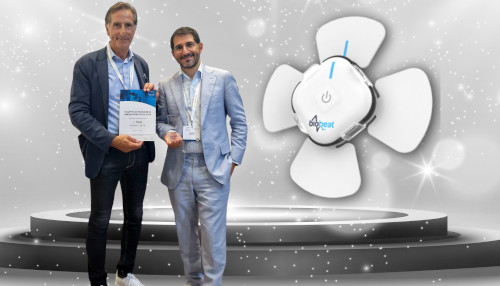
1. Platz HSK Innovation Pitch 2024
Biopeak hat den ersten Platz beim Innovation Pitch des renommierten Hauptstadtkongresses gewonnen!
Unser Blutdrucksensor von Biobeat setzte sich in einem epischen Boxkampf gegen die traditionelle Blutdruckmanschette durch und zeigte eindrucksvoll, wie moderne Blutdruckmessung ohne Manschette heute schon in der Regelversorgung eingesetzt werden kann.

2. Platz Telemedizinpreis 2024
Mit großer Freude und tiefer Dankbarkeit teilen wir mit, dass wir den zweiten Platz beim deutschen Telemedizinpreis 2024 belegt haben! Am 6. Juni 2024 haben wir unsere bahnbrechende Lösung für die 24-Stunden-Blutdruckmessung ohne Manschette beim 14. Nationalen Fachkongress Telemedizin im NOVOTEL am Tiergarten in Berlin präsentiert.

Das Morgen der Gesundheit: Blutdruckmessung ohne Manschette
Bei der Langzeit- oder 24-Stunden-Blutdruckmessung erhalten Patienten eine Blutdruckmanschette, die sich alle 15 Minuten am Arm aufpumpt...
Veröffentlichung in Flex Media - unabhängige Publikation als Beilage der Focus Ausgabe 29 | 15. Juli 2023

Gesundheitswesen in Israel: Blick in die digitale Zukunft
Israel ist für Innovation und zukunftsweisende Digitalisierung bekannt. Auch das israelische Gesundheitswesen profitiert insbesondere von zwei digitalen Megatrends: Das verstärkte Patientenmonitoring sowie eine bessere Bildgebung inklusive dem Einsatz von künstlicher Intelligenz. Wer nach Israel blickt, sieht schon heute eine mögliche digitale Zukunft des deutschen Gesundheitssystems vor sich...
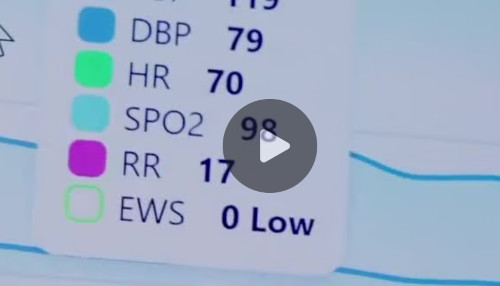
Tampa General launches hospital at-home program
When our world locked down in March 2020, many of our lives changed forever. Remote medicine is one area where things continue to make dramatic turns. Hospitals were at capacity, patients searched for beds, and the sick and dying were lined up in emergency rooms worldwide, waiting for care. It is hard to go back and relive those horrific first days. But, the pandemic forced medical professionals to find ways to treat patients better...
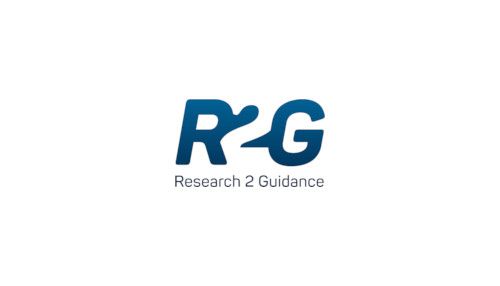
Biobeat is transforming the medical RPM leaving the Big Tech behind. Interview with Dr. Eisenkraft, Chief Medical Officer.
Continuous non-invasive medical remote patient monitoring solutions are set up to disrupt health systems and overall care workflow at home and in hospitals. Leveraging technology enhances the effectiveness of personalized medical care, leading to major differences in health outcomes and reduction of health costs. We talked with Dr. Eisenkraft ...

Innovative Wearables: Umfassendes Patientenmonitoring unter Berücksichtigung der IT-Integration
In der Patientenversorgung sind zahlreiche Parameter zu erfassen und Werte zu überwachen. Für ein zuverlässiges Patientenmonitoring bietet die biopeak GmbH nun eine Lösung: die Biobeat-Wearables.

Wie die Wearables von Biobeat klinische Studien revolutionieren
Die digitalen Wearables von Biobeat ermöglichen eine präzise Messung und Überwachung von bis zu 13 Vitalparametern gleichzeitig. Von ihrem Einsatz profitieren auch Forschung und Wissenschaft. So geht aus einer jüngst veröffentlichten Studie zu den Auswirkungen des Biontech-Impfstoffs auf die Vitalwerte hervor, dass ...

Contergan-Opfer kann endlich Blutdruck messen
Was für andere völlig normal und kinderleicht ist, war für Friederike Winter bisher nur mit großem Aufwand verbunden. Denn in ihren Armen fehlte eine bestimmte Arterie, die das Blutdruck-Messen dort sehr ungenau machte...

Abstimmung der Bedürfnisse des Anbieters auf die Wünsche der Patienten
Im Jahr 2020 haben sich drei Faktoren zusammengetan, um die Zukunft der Pflege im „Hospital at Home“ so zu gestalten, dass sie in den kommenden Jahren zu einer neuen Pflegerealität wird...

Was haben Alpakas mit medizinischen Wearables von Biobeat gemeinsam?
Die Corona-Infektionszahlen steigen wieder. Während Forscher versuchen ein Mittel gegen Covid-19 mit Hilfe von Alpakas zu entwickeln, gibt es immer mehr Corona-Genesene, die häufig auch lange nach der Erkrankung mit Spätfolgen zu kämpfen haben...

Biobeat Launches Wearable Continuous Ambulatory Blood Pressure Monitoring (ABPM) Device
New Clinical Data Supports Use of Biobeat ABPM Cuffless-Monitor as Reliable and Accurate Solution for Out-of-Clinic Blood Pressure Monitoring

Biobeat Partner with Amwell - one of the world’s leaders in Telemedicine
Read the full article

Von KI betriebene Patientenfernüberwachungsplattform von Biobeat erhält vollständige CE-Kennzeichnung
Bekanntmachung und weitere Informationen dazu

Biobeat's devices in a joint clinical study by Inova Heart and Vascular Institute and Amgen
Full article regarding the study
